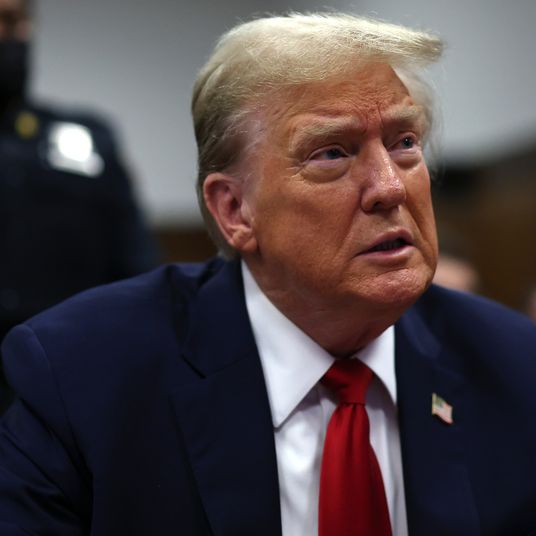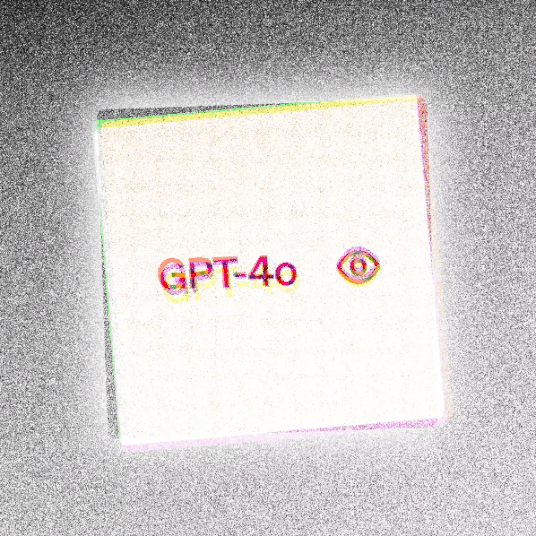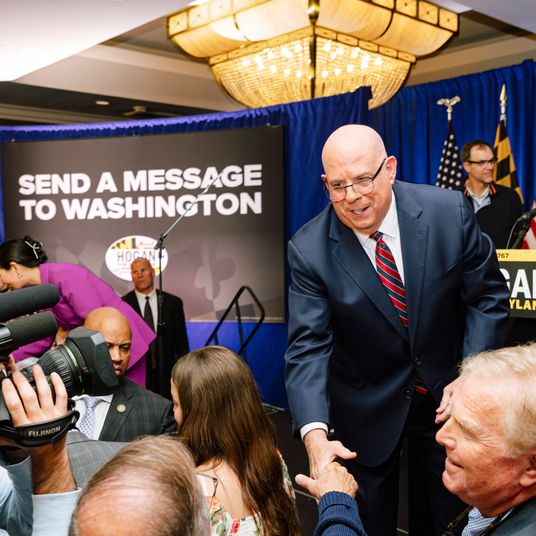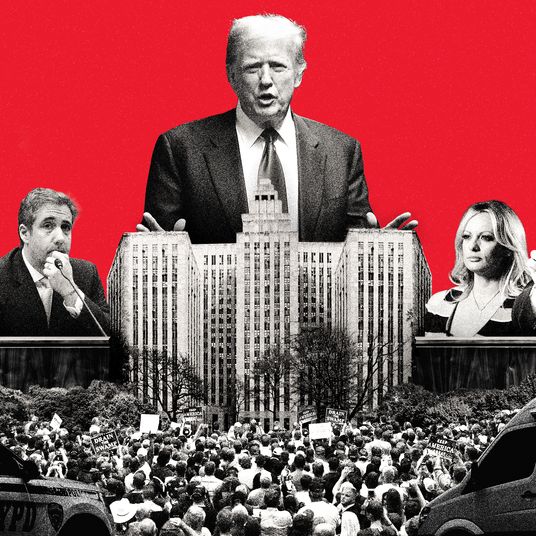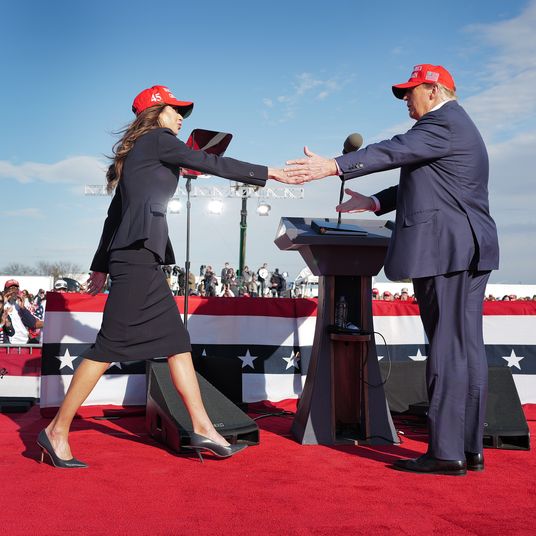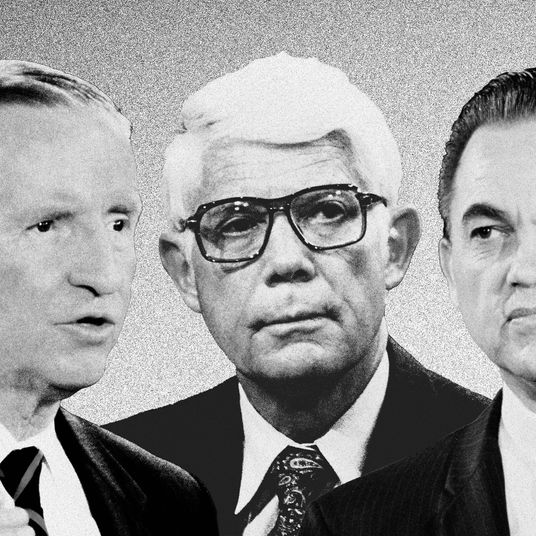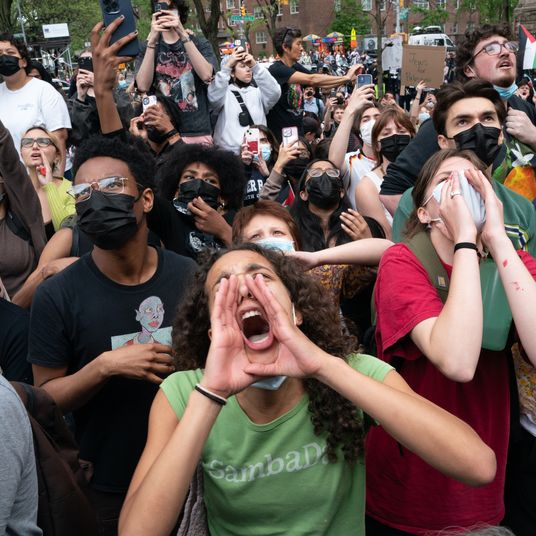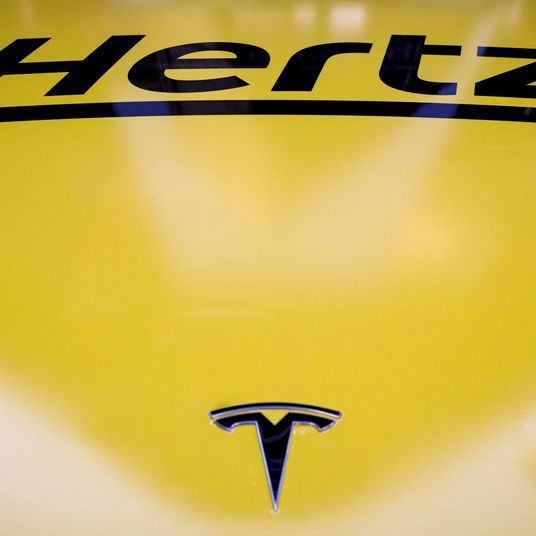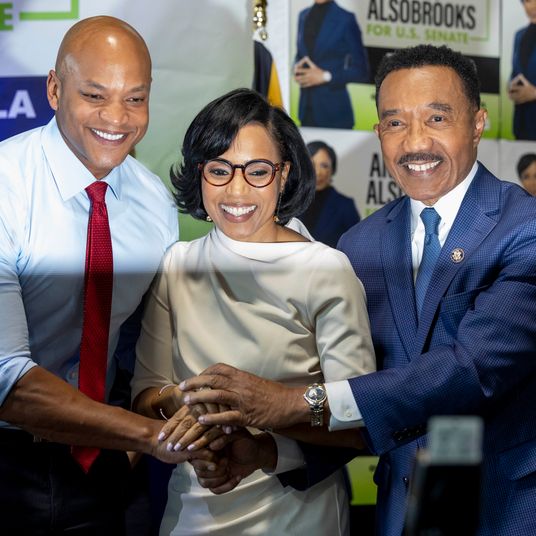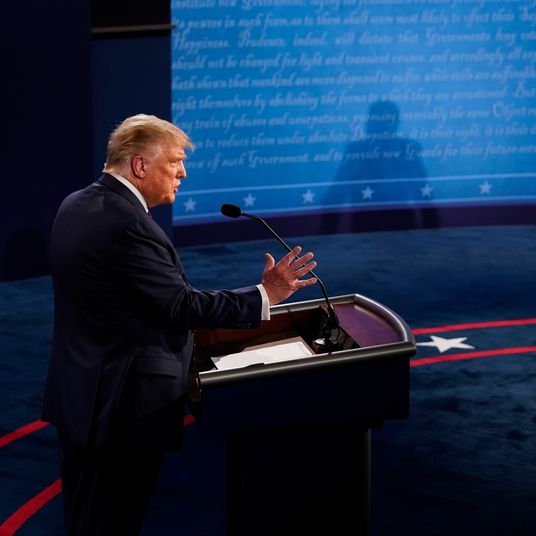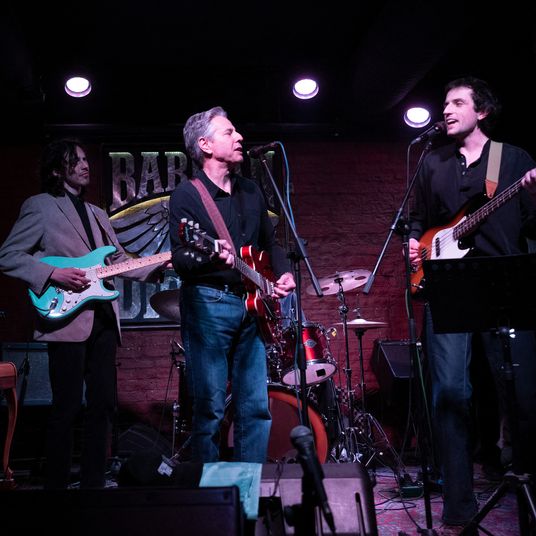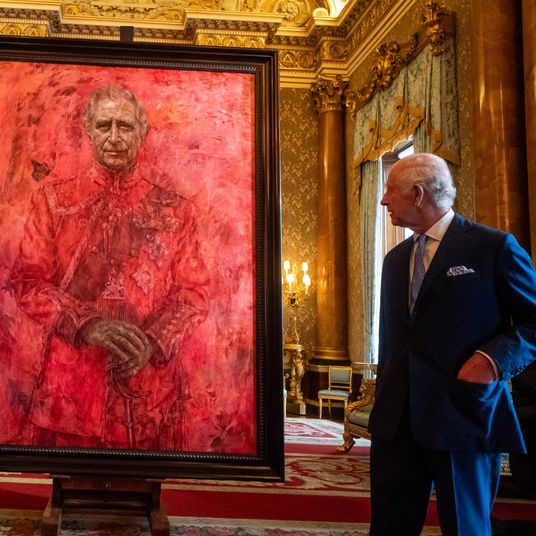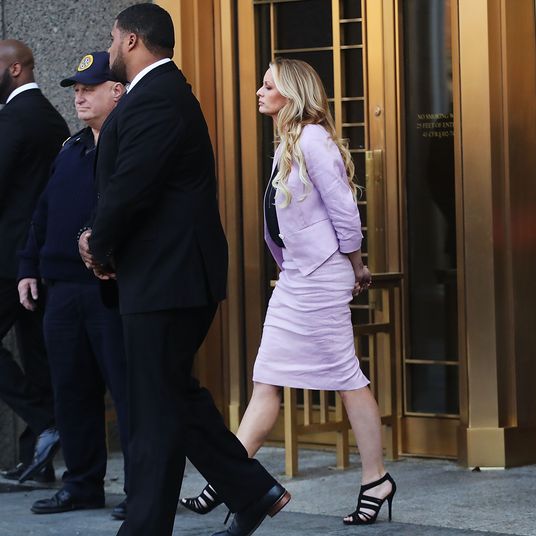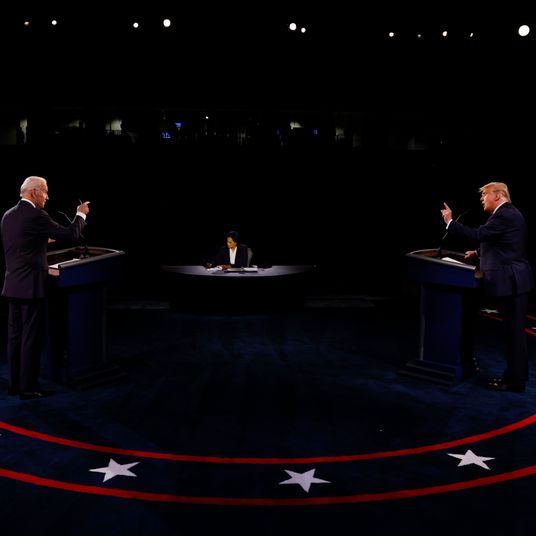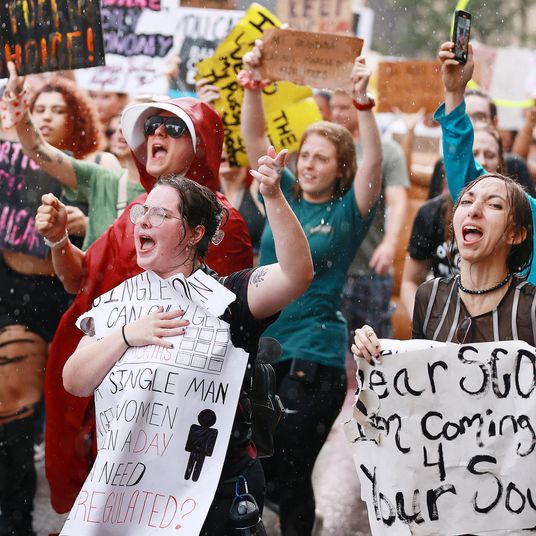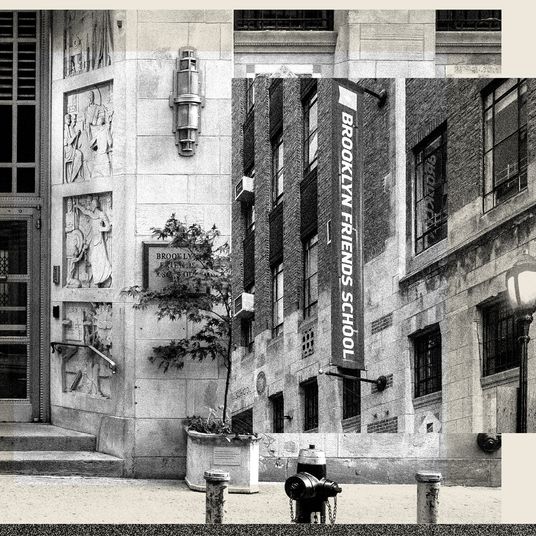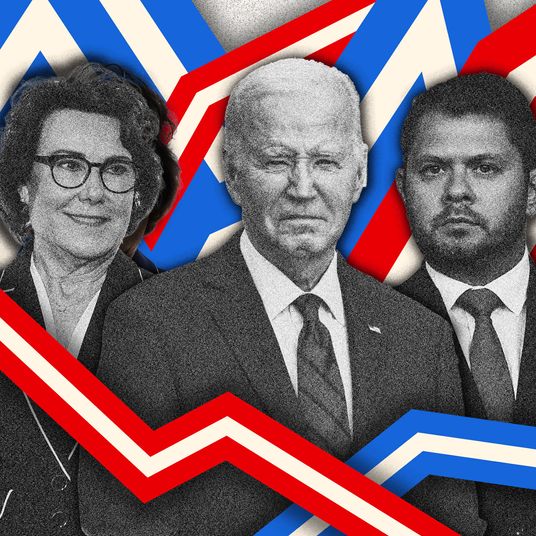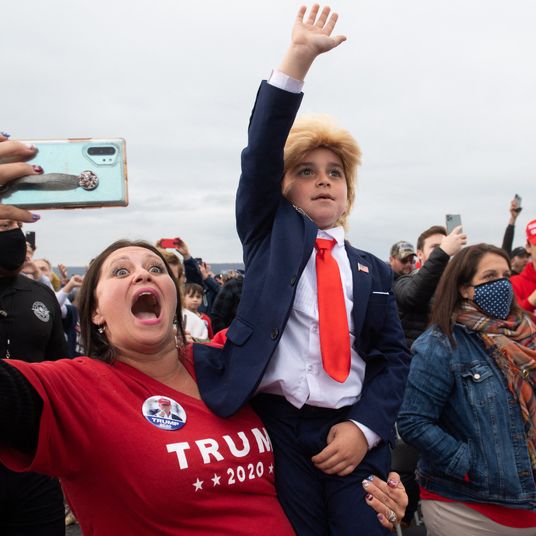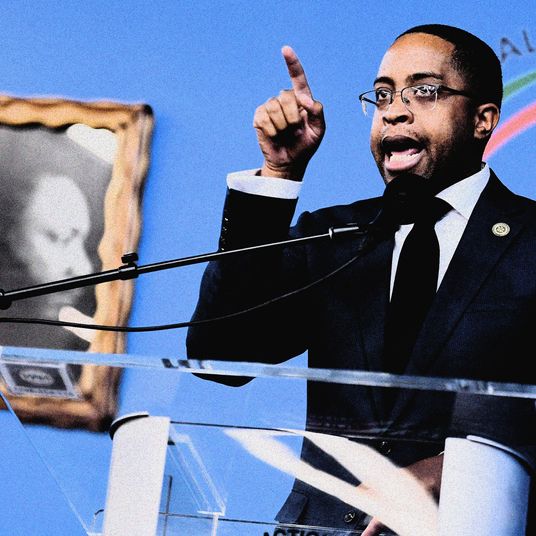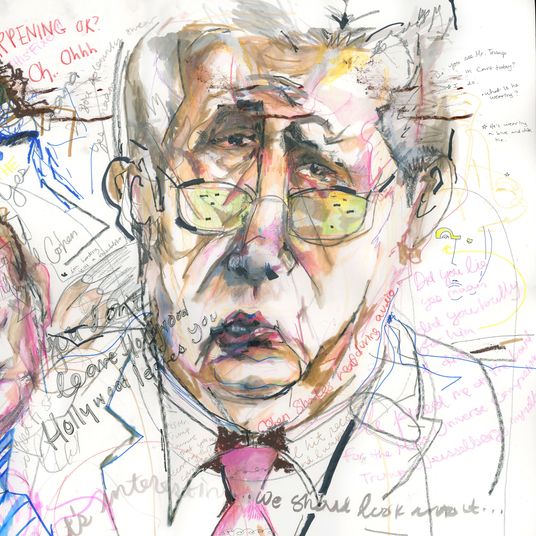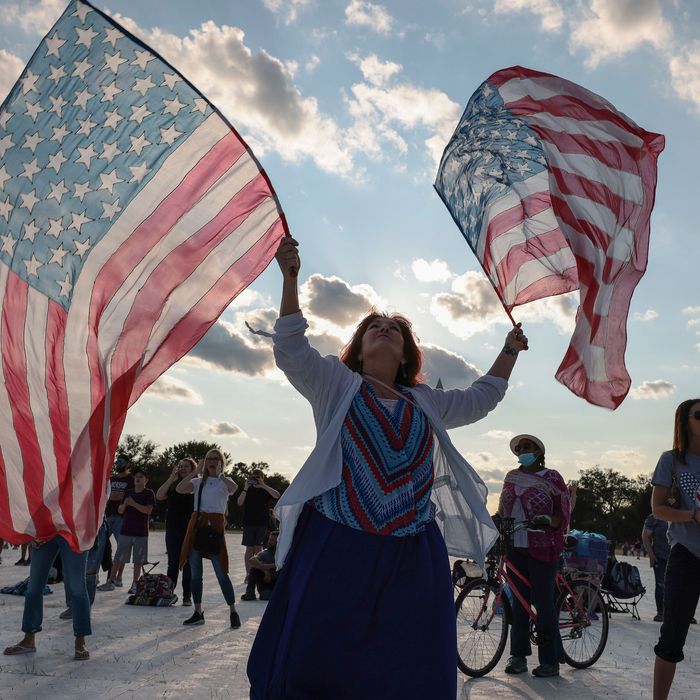
An ideology is on the march. Traces of it are detectable in a racist massacre in Buffalo; in Tucker Carlson’s monologues; in Marjorie Taylor Greene’s public comments. Find it again in the right’s anti-abortion rhetoric, which poorly disguises demographic anxiety, or in the right’s response to the school shooting in Uvalde, Texas, which shows it embracing God and guns with ever greater conviction. This ideology has a name, argue sociologists Samuel L. Perry of the University of Oklahoma and Philip S. Gorski of Yale University. Perry and Gorski call it white Christian nationalism, and in their view, it represents a pressing threat to democracy.
In The Flag and the Cross, their new book from Oxford University Press, white Christian nationalists undergo careful scrutiny. Combining research with data analysis, Gorski and Perry argue that white Christian nationalists share a set of common anti-democratic beliefs and principles. “These are beliefs that, we argue, reflect a desire to restore and privilege the myths, values, identity, and authority of a particular ethnocultural tribe,” they write. “These beliefs add up to a political vision that privileges the tribe. And they seek to put other tribes in their proper place.”
I recently spoke with Gorski and Perry about their findings and the threat white Christian nationalism poses to democracy.
Why do you think the term “white Christian nationalism” is so important to use?
Gorski: I think because it identifies one of the deepest and most powerful currents in American political culture, one that has been invisible to most folks outside of that culture and even, in a way, to a lot of people inside of that culture because it’s the water they swim in and the air they breathe. And of course it’s also important because it is right now evolving into a deeply anti-democratic ideology, one that really is driving some of the most radical fringe groups in the United States today, including many mainstream political candidates in the Republican Party.
Perry: I would say that one element we see, just from an empirical standpoint, is that quantitative indicators of Christian-nationalist ideology seem to operate differently for white Americans than for, say, African Americans. When white Americans take our surveys and answer questions about whether the United States is a Christian nation or we don’t need a separation of church and state or we should advocate Christian values in the government, for them, it is powerfully associated with things like nostalgia and authoritarianism and a certain vision of America’s history as this kind of mythic story: that we have a special relationship with God and that there is this kind of place that we are going — this deep story.
And the vision we talk about in the book for, say, African Americans who take the same survey and answer the same questions, those questions mean something different. Clearly, for African Americans to affirm those kinds of statements about Christian nation, Christian values, Christian heritage, they don’t think nostalgically for a better time. They think aspirationally. It seems, from the way they respond to other questions, that they respond to a lot of what Phil has talked about in a previous book on civil religion — that there is this aspirational component of American civil religion that holds to a creedal understanding of what America is supposed to be about, our constitutional principles. And so you can see what would seem like Christian nationalism in the mouth of Martin Luther King Jr. or Frederick Douglass properly understood as calls to live up to the values we claim to adhere to.
In my own writing — and it’s not just me — I’ve used the term “Christian right.” But it sounds like you’re talking about something more specific?
Perry: I think “Christian right” is shorthand for people who hold the ideology that we’re talking about. Since Trump came into office, the narrative was constantly about white Evangelicals, white Evangelicals, white Evangelicals, and why they stick with Trump. What we’ve tried to do is to steer away from that white Evangelical conversation to talk about the underlying ideology called white Christian nationalism that drives that support for Trumpism, his brand of politics, and all these other authoritarian and anti-democratic things. The Christian right, I think, is a similar kind of shorthand for a group of people that adheres to this ideology we talk about.
Gorski: The other reason I think we really use that term “white Christian nationalism” is that it connects policy preferences that we associate with the Christian right to an underlying narrative that connects those positions. I think a lot of folks go, “Well, gosh, how can you be anti-abortion and pro-gun?” and “How can you claim you’re pro-life but also be pro-death-penalty?” What does supporting the police or opposing masks and vaccines have to do with being a Christian? It doesn’t really make sense if you just look at it from a perspective of Christian ethics. But it does make sense if you think about it in terms of this underlying narrative or story about white Christian nationalism. And, in particular, I think here it’s important to understand this thing that we call the “holy trinity” of white Christian nationalism in the book: freedom, order, and violence. Which means a kind of libertarian freedom for people like us — “us” being, above all, straight, white, native-born Christian men — order for everybody else, which means racial and gender order above all else, and that kind of righteous violence directed against anybody who violates that order.
You write in the book that the Christian nationalists often have a completely incorrect understanding of American history. Can you talk about what myths tend to be attractive to them and why?
Gorski: Well, because it puts people like them at the center of the American story and it puts the American story at the center of the cosmic drama. White Christians like us are the real Americans, and America is the exceptional nation, the chosen nation that is playing a special role in the battle between good and evil. The end-times, etc. So who doesn’t want to be at the center of the cosmic drama? It’s why we get drawn into thriller novels or the Harry Potter books, right? Because it’s the same sense of, you know, There’s all this secret stuff that’s actually going on, and there are a few people who know, and they are going to defend freedom or the good and fight against evil. So of course the story is attractive. And I guess the one other thing I would add to this is that if you think in terms of this narrative, if you’re a white Christian, it doesn’t matter when you showed up in the United States; you have a kind of a birthright. You belong. You were always here, in a sense. People like you were always here. You’re part of the founding group. I always find this kind of ironic when you think about the folks who get sort of exercised about discussions of race and reject “The 1619 Project.” Why do they get so exercised about this? In part because it threatens their central place in the story and makes clear that in some sense you’re really talking about who got here first. It’s actually the descendants of enslaved Africans. It’s not immigrants from western or central Europe who showed up here in 1870 or 1910.
Perry: I would say as a flip-side component to Phil’s analysis there, which is spot on, that there is this huge identity-based motivation to believe these myths about America’s past that are factually incorrect oftentimes. Another part of this is that, frankly, a lot of people in these communities are socialized into believing it because there is an entire Christian nationalism industrial complex that is built to continue to perpetuate those myths. I’m looking on my shelves over here and I’ve got five different Bibles that carry various names like The Founders’ Bible, The Patriot’s Bible — actually, several Patriot Bibles. There’s one for teenagers and one for women. And there’s all of these books and all of these video series and programs that are put out by WallBuilders or Focus on the Family or various institutions. The goal of these media resources is to either provide religious leaders with that kind of ammunition or to provide religious consumers, people in the pews, with information about America’s Christian past that may or may not be factually correct. But it is designed, as Phil was talking about, to center white Christian Americans within that story and to tell them that this nation was founded on Christian values for Christian people. This is the narrative that this nation can only work if Christianity is the foundation — or biblical principles or Christian values. And, of course, they get to decide what that means. So there’s both an identity-based kind of driver there and a very real source of information that continues to be put front and center in congregations week in and week out.
Yeah, I’ve got an old history textbook of mine right on the shelf, and it was very much, as you mentioned, about America’s providential founding. You write in the book that the early Puritans read themselves into the Bible. And there’s this sense in my mind of people reading themselves into American history the same way.
Gorski: Exactly.
I was surprised to learn that white Christian nationalists, as you define them, have a greater antipathy for socialists than for atheists or even Muslims. And I was wondering if you would be able to explain what it is about socialism they find so threatening. I assume it has something to do with this libertarian bent to their economics.
Perry: Part of it is, I think, the libertarian impulse within Christian nationalism, but part of it is what socialists have come to represent in the country. So atheists and Muslims are religious categories broadly. And with Islam, you have kind of an ethno-religious category, even though that’s incorrect, but they tend to think Middle Eastern or Arab origins for Muslims. So there is this kind of race-and-religion component with Islam. But with socialists, you get a catchall boogeyman. It represents everything that Christian nationalism stands against. It represents economic leftism, certainly, but it also represents cultural atheism for the Christian right. And it also represents minority-identity politics for the right. That’s what you call somebody who is advocating for radical racial reform: You call them socialists, woke socialists. Dinesh D’Souza, who is a Christian right provocateur, wrote in his book United States of Socialism that he has this word for Black Lives Matter: He calls this “identity socialism,” right? Like he converges those two ideas of the socialism of the left and the failed economic policies of, say, Venezuela, with the radical minority-identity politics of Black Lives Matter or the George Floyd protests or Colin Kaepernick or whatever have you that is anti-American. So in Christian nationalism, as a religion that venerates Christianity’s place in America and America’s place generally, we see socialism as this all-encompassing catchall boogeyman of a threat, this composite of everything that is anti-American. It’s the anti-nation, which is historically what communism was. But now I think you don’t have any genuine communists to rail against. So you call the enemy the ultimate other, socialists, and you associate everything that’s wrong with socialism. I think certainly Christian nationalists or people who subscribe to Christian nationalism would be threatened by atheism and Islam. But more than anything, they’re threatened by leftism — leftism in all forms, whether that is economic, whether that is racial, whether that is religious.
Gorski: And I would just add that this, too, is very old. Martin Luther King was frequently dismissed as a communist by his enemies. The roots of this, the usage of that term, might go back to fundamentalist opposition to the social gospel in the ’20s, which kind of coincided with one of the first big Red Scares. I had a little exchange with Rick Perlstein, who is finishing up a new book that takes us up through the ’90s, and he really focused on secular humanism as kind of the catchall boogeyman category that got picked up and bandied about during that period. And he’s not wrong about that. It’s interesting that you don’t hear that phrase, I think, as much as socialism has in a way become the most important catchall boogeyman category. And I think Sam’s right. It’s because it folds in the economic stuff that people on the Christian right have been taught to care about by the donor class over the last couple of decades. That is definitely a feature as opposed to a bug.
You write that white Christian nationalism is “entangled with the holy trinity of racial order, Christian freedom, and male violence.” Other than Trump, who are the contemporary political figures you see fitting into this tradition?
Perry: I think anybody who subscribes to Trumpism and ultimately the political figures who advocate for it. You see this in Marjorie Taylor Greene; you see this in Wendy Rogers. Josh Mandel. I think J.D. Vance more and more. Elise Stefanik. Anything that appeals to white Christian ethno-culture — not Christianity. I mean, sometimes you get it couched in vague language about returning to God. But it’s also combined with a worship of gun culture, a worship of capitalism as opposed to woke leftists or a socialist agenda. If they discuss race at all, it’s very much in a color-blind way: Let’s stop talking about race and let’s just kind of move on to remember how awesome America is. I think any politicians who are spouting that kind of rhetoric or tipping their hand, it’s either the kind of ideology they themselves espouse or it’s the kind of ideology they believe people want to feel, as though they are hitting those notes on Twitter or social media or in their speeches. Obviously, we find in our surveys that this is well represented among the American population. It’s not the majority, but it’s not an insignificant minority of Americans who hold those kinds of views. So I think those would be exemplars of the kinds of things we’re representing. And I think, in earlier years, it would have been Mike Huckabee and who he represents and the kinds of things he is saying. Michele Bachmann before that. In terms of people who are out there, I think, sharing those kinds of things, you’ve got Charlie Kirk and Eric Metaxas. Not political leaders but religious leaders who are spouting the same kind of ideology.
Gorski: I think, right now, their preferred packaging for the holy trinity is replacement theory. It’s very clear who is being replaced, and it’s certainly implied and often stated what needs to be done. It is interesting that the preferred means are always kind of coercive, potentially violent ones. Nobody says, “Well, we should really have more stringent requirements for E-Verify to make sure that people are actually citizens or have green cards in order to get employed.” Now it’s like, “Let’s send more ICE guys to the border” or “Let’s build the wall.” The preferred means of enforcing the order are always coercive and potentially violent ones. The loudest versions of this do come from the entertainment wing of the Republican Party. So it’s Steve Bannon and Charlie Kirk and Eric Metaxas and Laura Ingraham and Tucker Carlson, of course, who are the loudest and most explicit about this. And then folks within the Republican Party tend to couch this more in terms of voting rights and election fraud and illegal immigration. But of course those things are connected.
You write a lot about male violence; I think you use the term “righteous violence” in another section of the book. And you spoke earlier about this worship of gun culture that exists. Are you able to extrapolate from that and talk about how important this worship of gun culture is to giving up on persuasion? Is this related to the right’s anti-democratic tendencies?
Perry: It’s difficult to assess what causes what. But I can tell you there would be a strong correlation between, say, the veneration of gun rights above all rights and the belief that, say, voting is a privilege, not a right, something that can be minimized or marginalized or just taken away entirely. Or that access to the vote, political power, should be limited. I actually haven’t looked at this. But I’m 100 percent certain that those two things are strongly correlated. It’s a matter of, How do we explain those links? And I think the link is this kind of appeal, as Phil was talking about, where this is a part of that holy trinity — this idea that “Freedom for us amounts to freedom to control who has access to violence” and “We control problem populations. We ensure order through the access to violence.” That could be physical violence but also the authoritarian removal of access and opportunities from others to be able to participate in democracy. That’s exactly why we see that the same people who would say “We need to stop rampant voter fraud” and “We need to make sure voting is not made easier but more difficult and more challenging” would be the same people who say “We secure all of our rights with gun rights.” That’s why gun rights are the most important: Because it secures every other right through access to violence. If I got any pushback from the article at Time, it was people who said, “Well, gun rights, of course, are the most important because you can’t have any other rights unless you have access to guns.” In other words: violence. “Unless we are able to control deviance and problem populations, people who want to take away our rights, with gun violence, then nothing else really matters.” Even religious rights, which is really a fascinating contradiction.
You end the book with what I would call a warning about what a threat white Christian nationalism is to democracy. Could you speak a little bit more about why it’s so threatening and what, if anything, can be done about it?
Gorski: The way I would explain it best is that you’ll often hear white Christian nationalists talk about taking back society or democracy for “we, the people.” Citing, of course, the opening line of the Constitution. But when they say “we, the people,” they mean “us, the people.” And they’re saying, sotto voce, “Not you, who are not real Americans.” And this sounds democratic in the sense that it’s about the people being in charge, but it’s actually anti-democratic because it excludes many American citizens from full citizenship and because it justifies various means of limiting the vote. So I find very strong correlations between white Christian nationalism and support for gerrymandering, support for the Electoral College, support for various other kinds of means of restricting the vote. I think in the longer run, something you’re hearing increasingly is that we need to create a society that’s based on biblical principles. And what they, of course, mean by this is not the beatitudes. You know what they mean by this is Leviticus. Strict laws that reinforce our place in this society. I think the reason this is so frightening is that we know how this script works, right? It’s already been running for a good decade in Hungary, for example, and it’s been running that long in India. It’s not something specific to the Christian world. And it ends in autocracy. So this is a fundamental threat to democracy understood as liberal democracy, a democracy where there’s rule of law, a democracy where there are rights for all.
Perry: Just speaking really quickly as to what can be done about it, I think we are faced with a problem that transcends traditional partisan lines and a lot of cultural lines. It requires a coalition of people who recognize this is a threat. If we were all convinced that one year from now an asteroid was going to strike the earth, we would, I hope, put aside petty differences in order to try to work together to solve this common problem. And we are as a nation and as a world facing common asteroids that are coming to kill us. One of those was COVID. One would hope we would unite together to cooperate to solve the problem of this pandemic. Another one that we are facing is climate change. And white Christian nationalism represents an American manifestation of a global trend toward authoritarian populist regimes, and anybody who values democracy and legal equality and representation and liberal democracy in that regard is facing a problem. And so, in the United States, we need to recognize that, and we need to cooperate with people who think differently from us on a variety of issues. But we are united in our opposition to that movement. We want to preserve a constitutional democracy where we are able, through free and fair elections, to replace leaders who are bad and regimes that are bad with representative governments. And so I think the movement that we are seeing in white Christian nationalism looks to dismantle that because it has to. I’m not sure how you want to position this, but I think, statistically, it is inevitable that secularization is slowly creeping throughout the United States. That happens through demography and cohort replacement. That also happens just as Americans are changing their attitudes in a variety of regards, and Americans are moving leftward on most social issues and on the most moral issues, and there are many surveys that can document that trend. White Christian nationalism represents a shrinking minority of the population. And yet they still look to have political and cultural influence. The only way they are going to be able to do that over the long term is to change the political situation to where they can rule from a minority position forever. That ought to be threatening to people who understand why it’s a problem.
This interview has been edited for length and clarity.






